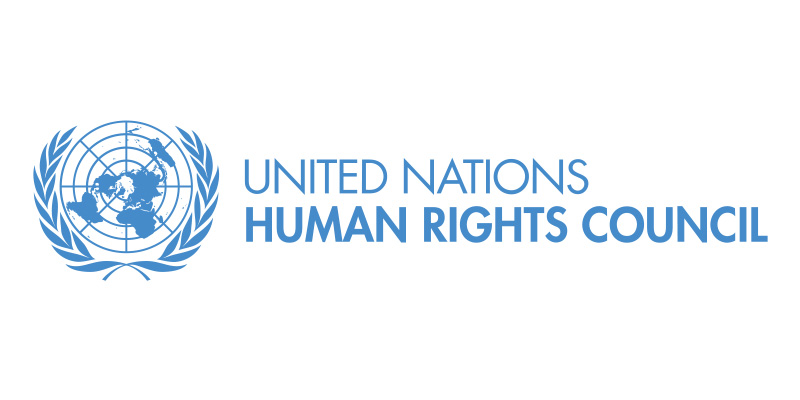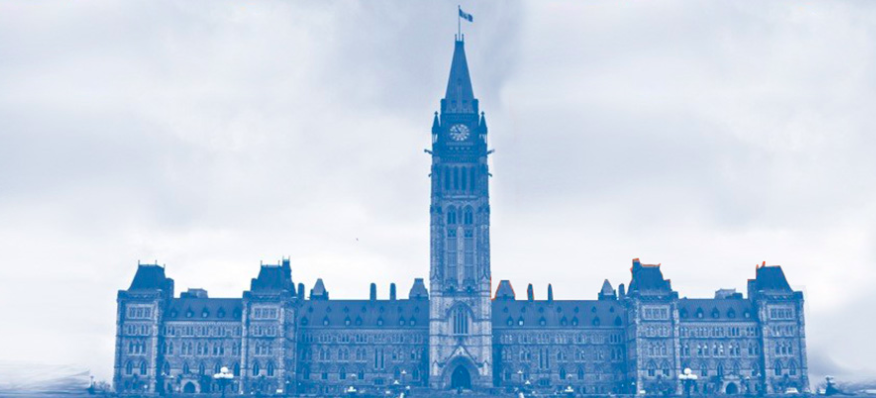The Canadian Network on Corporate Accountability (CNCA) welcomes the opportunity to provide comments on the draft of Canada’s national report to the fourth cycle of the Universal Periodic Review. The CNCA brings together forty human rights, environmental, labour, faith-based and solidarity groups from across Canada, together representing over 3 million Canadians. The CNCA advocates for mandatory corporate accountability standards for Canadian companies and is connected with communities, workers, Indigenous peoples, and environmental and human rights defenders from around the world. The CNCA’s reform proposals focus on preventing and remedying corporate human rights, labour and environmental abuses that occur outside of Canada, which is under the jurisdiction of the federal government.
===
16 June 2023
We note with concern that Canada’s draft report lacks sufficient attention to the serious human rights abuses that continue to be linked to the global operations and supply chains of Canadian businesses, and to the continued absence in Canada of binding measures to end these abuses.
Following the third cycle of the UPR, Canada “fully supported” a number of Human Rights Council recommendations concerning the human rights conduct of Canadian businesses abroad. [1]
These include:
- Recommendation 142.97: Consistency with the United Nations guidelines with regard to the [access] of the victims of Canadian companies operating abroad to justice in Canada;
- Recommendation 142.92: Ensure that Canada’s mining, oil and gas companies are held accountable for the negative human rights impact of their operations abroad;
- Recommendation 142.93: Adopt additional measures to guarantee the accountability of transnational corporations and other business enterprises with regard to allegations of human rights abuses in third countries throughout their chain of production and operation;
- Recommendation 142.94: Strengthen measures aimed at ensuring access to justice and remedies for violations of rights of persons by transnational corporations registered in Canada operating abroad; and
- Recommendation 142.91: Take further steps to prevent human rights impacts by Canadian companies operating overseas, as well as ensuring access to remedies for people affected…
Further, the national report submitted by Canada to the third cycle of the UPR highlights Canada’s creation of an independent Canadian Ombudsperson for Responsible Enterprise (CORE).
===
In light of the above recommendations, we respectfully submit the following comments for your consideration:
1. Ongoing, serious harm continues to be linked to Canadian companies’ operations abroad
Far too often, Canadian companies operating abroad fail to deliver on their responsibility to respect human rights and protect the environment. Ten years after the unanimous endorsement of the United Nations Guiding Principles on Business and Human Rights (UNGPs), there continue to be widespread reports of serious human rights abuses and environmental damage linked to the overseas activities of Canadian companies and supply chains. These harms are well-documented and include reports of killings, [2] sexual violence, [3] land grabs, [4] poverty wages, [5] and forced labour [6]. Abuses have been formally reported to Parliament as recently as February 2023 as part of the Standing Committee on International Trade’s study of Canadian Mining Firms Abroad.
Communities and workers who suffer harm are often unable to access justice and remedy. Human rights and environmental defenders who stand up to powerful corporations frequently face violence, intimidation or criminalization. [7] The risks and vulnerabilities they face have worsened with the global COVID-19 health crisis. [8] The gendered and racialized impacts of these harms are well-documented.
2. Voluntary approaches have proven to be ineffective at curbing corporate abuse; Canada needs mandatory human rights and environmental due diligence legislation
To date, Canada has relied almost exclusively on voluntary approaches to prevent, address and remedy serious harms. Both in Canada and globally, voluntary approaches have proven to be ineffective at curbing corporate abuse. [9]. We have noted with concern that Bill S-211, the Fighting Against Forced Labour in Supply Chains Act, adopted by the federal government in May 2023, will not help prevent these abuses and may even do more harm than good. [10] Our detailed analysis of the inadequacies of Bill S-211 and the requirements of effective legislation is available here.
The Fighting Against Forced Labour in Supply Chains Act, in requiring companies to report, but not requiring them to undertake due diligence nor provide access to remedy to impacted communities, is inconsistent with Canada’s obligations under the UNGPs’ Protect, Respect and Remedy framework. To fulfill its obligations, Canada must pass and implement legislation that mandates Canadian companies to conduct comprehensive human rights and environmental due diligence (mHREDD) throughout the entirety of their global business operations and supply chains. To be effective, mHREDD legislation should: 1) establish a corporate duty to prevent and avoid adverse human rights impacts; 2) establish a corporate duty to develop, implement and report on adequate human rights and due diligence procedures; and 3) ensure access to remedy and enforcement of HREDD obligations. To be effective, Canadian mHREDD legislation must apply to all Canadian companies and cover all human and labour rights, which are indivisible and interdependent.
The CNCA has worked alongside a team of international legal experts to develop model mHREDD legislation. If legislation based on this model were passed and implemented, it would help to fill the numerous gaps in Canada’s laws, regulations and policies that have allowed for human and environmental abuses to take place in the global operations and supply chains of Canadian companies. Implementing mHREDD legislation would also help ensure that Canada meets its obligations under the UNGPs’ Protect, Respect and Remedy framework. The CNCA recommends that the government of Canada passes and implements robust mHREDD legislation.
3. The Government of Canada has not upheld its commitment to create an independent and effective ombudsperson
As highlighted in CNCA’s 2021 brief to the House of Commons Subcommittee on International Human Rights of the Standing Committee on Foreign Affairs and International Development (SDIR subcommittee), the Government of Canada has failed to uphold its commitment to create an independent and effective ombudsperson with strong investigative powers. Over five years since the Government of Canada announced it was creating the Canadian Ombudsperson for Responsible Enterprise (CORE), the office still lacks vital powers, including the power to compel documents and testimony. The absence of powers continues to be met with serious concern by human rights defenders and by Canadian civil society. Given the absence of the basic minimum powers to fulfill the CORE’s mandate, CNCA members have felt the obligation to warn our global partners to approach the CORE with caution, if at all.
Additional background on the deficiencies of the CORE can be found in CNCA’s brief submitted to the SDIR subcommittee. The CNCA recommends the government of Canada move immediately to fulfill its commitment and invest the CORE with the power to produce documents and compel witness testimony under oath.
4. Canada has failed to fulfil its obligations to protect human rights defenders abroad
Commentary from a number of UN bodies has highlighted serious concerns that Canada has failed to fulfil obligations to protect human rights defenders abroad. The CNCA highlights the ongoing, serious harm faced by human rights defenders due to Canada’s current legal and policy landscape. These concerns, and recommendations to Canada, are detailed in a 2023 submission to the UPR working group by the Justice and Corporate Accountability Project and MiningWatch Canada. Alongside 26 other organizations, and 39 professors, lawyers and legal scholars, the CNCA fully endorses this submission and recommends that the Government of Canada act on its recommendations. Canada’s failure to fulfil its international human rights obligations to human rights defenders is also outlined in the June 2, 2023 petition to the Inter-American Commission on Human Rights against Canada for violations of the right to life and other rights of Mariano Abarca, a Mexican human rights defender and community leader who was murdered in 2009.
ENDNOTES
[1] These recommendations are highlighted in the submission of the Justice and Corporate Accountability Project and MiningWatch Canada to the UPR Working Group of the United Nations Human Rights Council. The CNCA is one of 26 organizations and 39 professors, lawyers, and legal scholars who endorse the submission.
[2] https://justice-project.org/the-canada-brand-violence-and-canadian-mining-companies-in-latin-america.
[3] https://cnca-rcrce.ca/site/wp-content/uploads/2023/02/cnca-case-study-5-porgera-1.pdf
[4] https://cnca-rcrce.ca/site/wp-content/uploads/2023/02/cnca-case-study-4-Feronia.pdf
[5] https://usw.ca/wp-content/uploads/2021/02/SHF-Report2020-final_EN_web.pdf
[6] https://cnca-rcrce.ca/site/wp-content/uploads/2023/02/cnca-case-study-3-Forced-labour-PPE.pdf
[7] For example, Global Witness recorded that 227 land and environmental defenders were killed in 2020 – an average of more than four people a week. Over a third of the incidents were linked to natural resource extraction.
[8] For more on why building back better requires action on corporate accountability, see CNCA’s 2020 letter to Minister Ng here. For examples of the increased impact on the women who make our clothes see here, and on those working or impacted by the mining sector see here.
[9] For example: A 2020 study commissioned by the European Commission established that voluntary measures have had only a limited impact. A 2022 report by Know the Chain exposes the “glacial” rate of progress on due diligence by the world’s largest companies over the last five years. On average, the 129 companies benchmarked by KnowTheChain score a mere 29% for their human rights due diligence efforts. Key findings include: * Over a third of benchmarked companies (36%) do not show any evidence they are assessing human rights risk in their supply chains. * Four out of five provide no evidence they are adopting responsible purchasing practices to mitigate the risk of forced labour in their supply chains. A 2021 Responsible Mining Foundation report highlights that “the vast majority of companies assessed in the RMI Report 2020 show no evidence of translating their corporate commitments into action plans, thorough due diligence processes, and tracking the effectiveness of implementation. On average the set of large mining companies assessed in the RMI Report 2020 achieve a low 19% score on human rights-related issues.” Finally, a 2015 report Remedy Remains Rare analyzes 15 years of NCP cases and outlines the failure of the NCP system to provide relief for victims of corporate misconduct.
[10] For additional analysis of this legislation, see the CNCA submission to the Standing Committee on Foreign Affairs and International Development’s study of Bill S-211, Fighting Against Forced Labour and Child Labour in Supply Chains Act.




